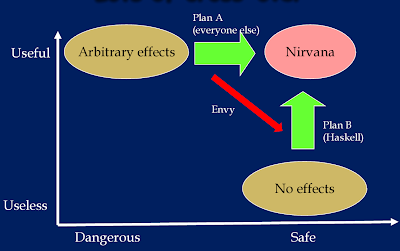[tips] 針對特定model改變django ORM預設delete()行為的方法
Django ORM裡的預設delete行為是去模擬ON DELETE CASCADE, 主要是為了保證資料的一致性, 但是雖然在自帶的admin介面裡會提示是否要刪除其他相關聯的資料, 不過仍然可能會對某些需求帶來一些困擾, 而且到目前為止並沒有一個標準的方法來更改這個機制, 這邊我提供一個簡單的方法將model的ON DELETE CASCADE行為改為RESTRICT, 就是在需要不同機制的model裡去override orm原本的delete行為 :
def delete(self):
s = CollectedObjects()
self._collect_sub_objects(s)
if len(s.items()) == 1:
super(self.__class__, self).delete()
else:
pass
這可確保當沒有任何關聯物件時才會刪除, 否則只會安靜的pass,
this hack probably need django 1.0+.






